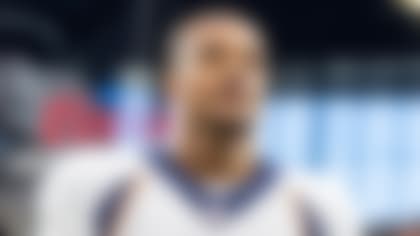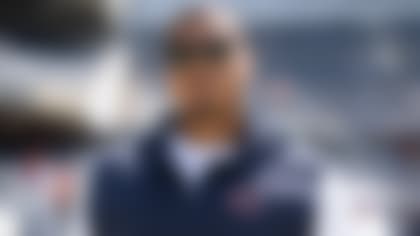Sometimes when managing a game, you have to closely evaluate it as it progresses because not all situations that you practice match up with what unfolds on the field. How the game is being played by the offense or defense does affect how you manage that particular game, and if one part of the team is not playing well, the game situations must be adjusted.
Here's a story I love that's a little off the track, but still relevant. When Bill Parcells was coaching the Giants, he and offensive coordinator Ron Earhart tried to get quarterback Phil Simms to throw the out pass in a game for an easy completion, but each time they called it, Simms looked off and threw the ball in another direction. Finally, after pleading with Simms during a timeout, the quarterback went back on the field and failed to make the throw again. Earhart went nuts, but Parcells calmly told his assistant, "Forget it, Ron, he is watching a different game than we are."
You have to know what is going on in the game and oftentimes people don't see the game clearly, or the same one as you do.
For example, in Jacksonville on Sunday, Colts coach Jim Caldwell, who normally is a good game manager, made a mistake in part because he was thinking his defense was as dependable as the one he had last year, not the one that allowed the Jaguars to convert almost 70 percent on third down for the game.
Caldwell: We didn't want OT
A day after calling a timeout that allowed the Jaguars time to make a last-second, game-winning field goal, Colts coach Jim Caldwell explained his decision:
"What we look at is this: You never know if you're going to get the ball back in those situations. The big thing we try to look at is if we can get the ball back for our offense. Particularly if we're on the road, we don't necessarily want to go into overtime. If we can win in regulation, we want to give it a shot.
"The timeout in that situation ended up being probably about what we thought it would be. We wanted to make sure we had a third-down situation where if they didn't make it they had to punt the ball. It was there. We had opportunities there that last drive to get the ball back, but we didn't do it.
"You always reflect. You always think back. You always look at yourself first in terms of what you would do differently to try to learn from it, but we're pretty aggressive in those areas."
Jacksonville started its final drive with 42 seconds left, the game tied at 28, and the ball at its own 23-yard line. After Maurice Jones-Drew gained 8 yards on a first-down run up the middle, Caldwell called a timeout, something that wasn't unusual for him to do.
Caldwell wanted to get the ball back with around 20 seconds to go and give Peyton Manning a chance to get into field-goal range. Remember, the time on the clock must be translated into plays; 20 seconds equals four plays -- maybe five with the fifth being a last-second field goal or desperation throw. And the Colts, with Manning running things, have consistently executed this part of the game very well. Last year in Miami, for example, with just 35 seconds remaining in the first half, Manning moved his team downfield for a field goal, which ultimately proved to be the difference in the game.
But the mistake Caldwell made on Sunday was not in calling the timeout but rather ignoring that his defense was not stopping the Jaguars, especially on third down. He was being greedy thinking he had the Colts of last year, but defensive ends Dwight Freeney and Robert Mathis are not rushing like they did a year ago and the entire defense is struggling to defend the pass and get off the field on third down.
During the Jaguars' fourth-quarter drive before the Colts tied the game, Jacksonville converted three third downs to keep moving the ball -- the last for a go-ahead touchdown. The Jaguars might not have the most explosive offense, but on this day they were moving the ball on the Colts, especially on third down. Once Jones-Drew gained 8 yards on first down, Caldwell needed to adjust his thinking and play for OT.
The run call on first down by Jacksonville was a strange one, especially since it had two timeouts left and kicker Josh Scobee has a strong leg (coach Jack Del Rio said later he would have allowed Scobee to attempt a field goal from 65 yards). Scobee was also kicking with a slight wind behind him. But even with all of these factors playing in their favor, the Jaguars were content to let the clock roll with a run on first down. In other words, they were playing for overtime.
Going forward, Caldwell must rethink his strategy during game-management situations as it relates to his defense, especially when the Colts are playing on the road.
Reid gets pass on delay penalty
Eagles coach Andy Reid seems to grace these pages every week for his game mismanagement, but this week I think he deserves a pass for his team's delay-of-game penalty following a timeout in Philadelphia's 17-12 loss to Washington. Yes, it's a horrendous mistake, but understandable when looked at closer.
In games this season, the 25-second clock has been inconsistent in when and why it starts running. In fact, in the Jaguars-Colts game on Sunday, Peyton Manning was going to be called for a delay penalty, but referee Ron Winter realized the clock had started prematurely and did not call the penalty.
Here's what happened to the Eagles:
Late in the second quarter, LeSean McCoy had gotten the ball to the Washington 1-yard line on a drive that lasted nearly 9 minutes. The play was challenged by the replay official to see if McCoy had crossed the plane of the end zone. It was ruled that he had not, and Reid called a timeout, apparently not satisfied with the placement of the ball.
It was after the timeout that the Eagles received the delay penalty that forced them to kick a field goal rather than go for a makeable fourth-and-goal from just inches away. David Akers' kick got them within 11 points; a touchdown would have gotten them within seven.
Reid got blindsided, because when Kevin Kolb went to call the play, the quarterback entered the huddle with just 10 seconds left on the play clock, which coming off a timeout seems to be strange (and suspicious). Most teams, once the timeout is nearing conclusion, send their quarterback on the field with a call, but for some reason the clock was running and the Birds' entire bench failed to notice until it was too late.
It was a bad play, but I am not sure this is all Reid's fault.
Is a safety in order?
When the Ravens went for it on fourth-and-2 at the Pittsburgh 2-yard line (they could have gotten a first down inside the 1) with 2:44 left in the game and trailing by four, they were playing the field-position odds, knowing if they failed, their defense could get the ball back on a short field. Settling for a field goal there was not really an option because it would have changed field position and the Steelers' offensive-play strategy.
Working the clock
Sacks at the end of a half can kill a ton of time off the clock. When a team takes the field at the 2-minute warning or the end of a game and does so with no timeouts, my first reaction is a sack will end the game. Timeouts help stop the clock, but more importantly they help a team out of a negative situation.
Thanks for the game-management comments and ideas on Twitter. I love them, so please make sure to keep them coming.
Follow Michael Lombardi on Twitter @michaelombardi




